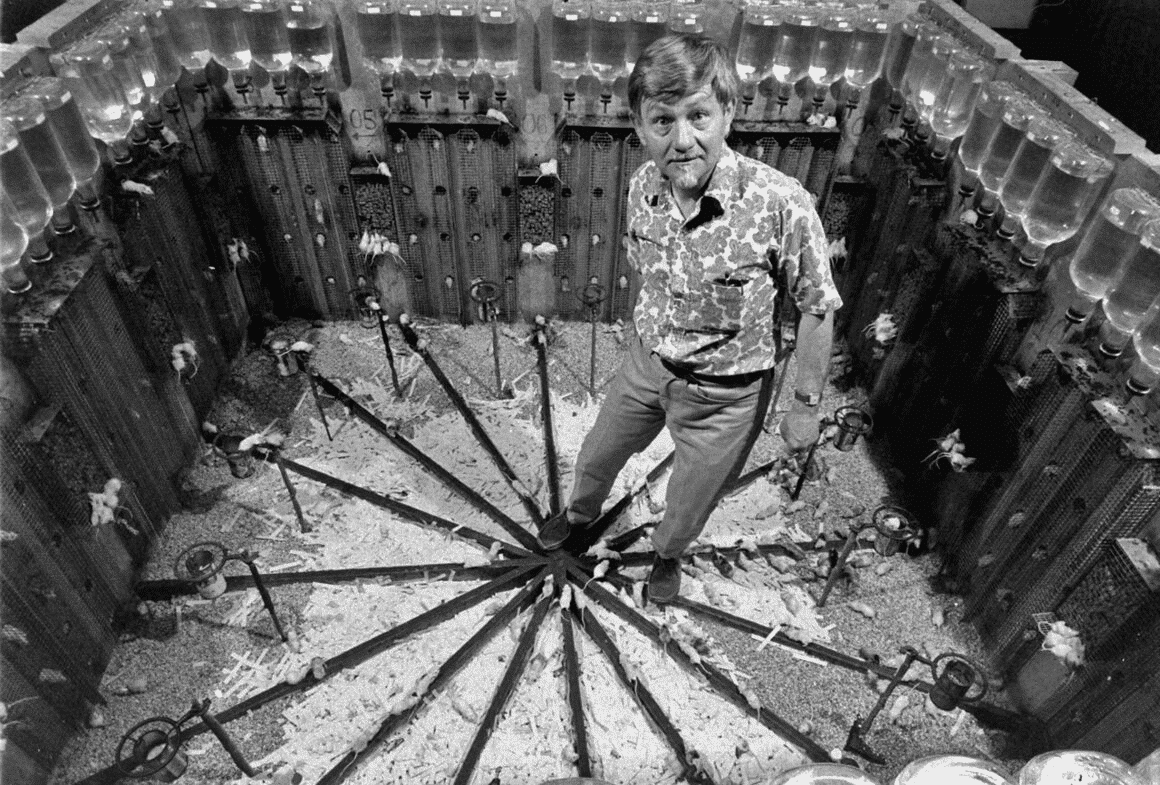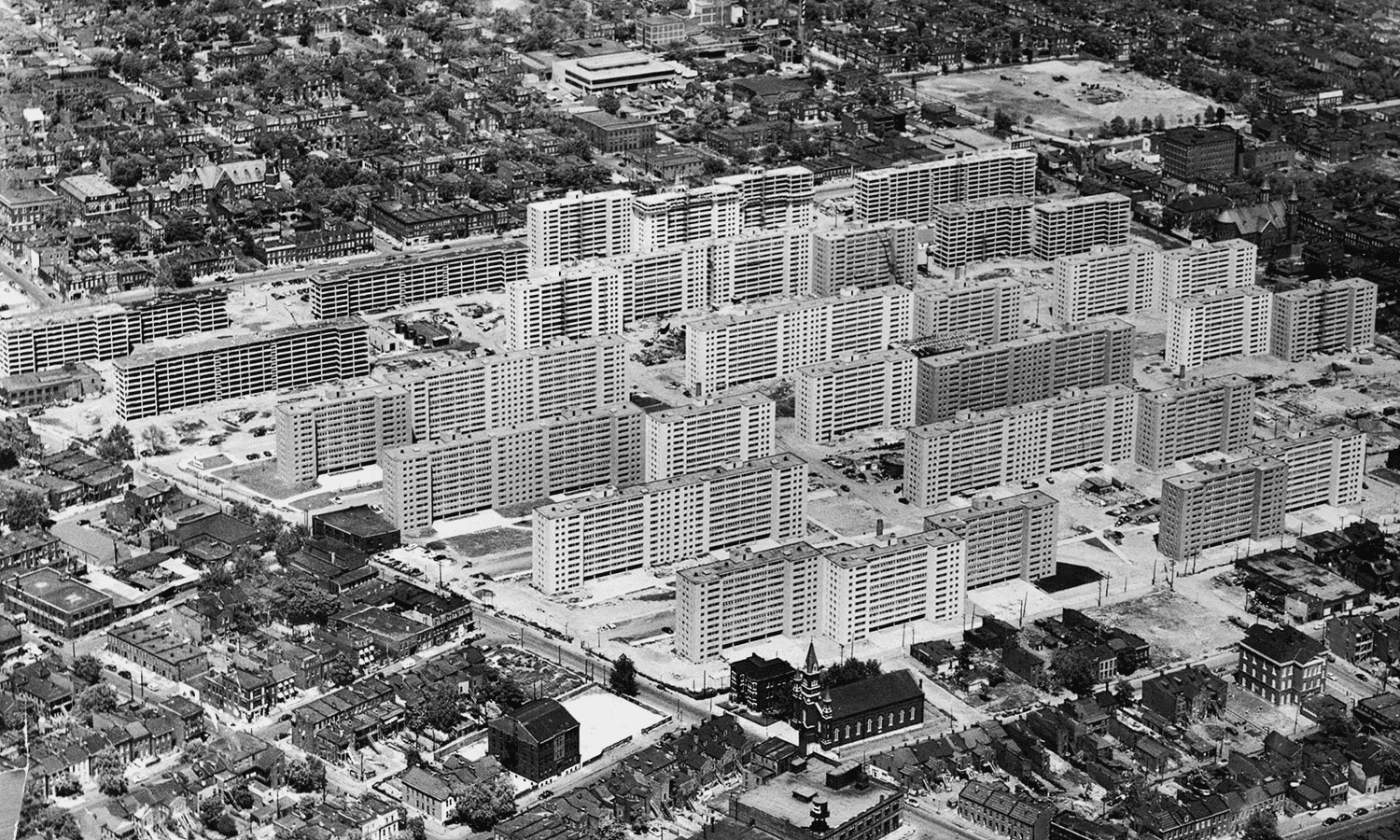In the ceaseless quest for progress and plenitude, modern society has provided unprecedented levels of comfort, security, and access to resources. Yet, a crucial question looms: What happens to us—mice and men—when we are stripped of purpose, even when surrounded by abundance?
To truly grasp the significance of purpose, it may be instructive to understand its absence. Paradoxically, two disparate experiments—one involving a colony of rodents and the other a human housing complex—offer startling insights into the grim realities that unfold when living beings are provided everything but a reason to live meaningfully.
In the 1960s, ethologist John Calhoun’s ‘Mouse Universe’ offered rodents an idyllic setting with abundant food, shelter, and security, yet confined in space. The result was not a rodent utopia but a society teetering on the edge of psychological and social collapse.

Concurrently, the Pruitt-Igoe housing complex in St. Louis, Missouri, crafted with the noblest intentions, deteriorated into a dystopian enclave. Designed to offer low-income families a respite from squalor, the project instead became a grim testament to the corrosive effects of a life devoid of purpose or community.

The implications of these experiments extend beyond the laboratory and the derelict buildings; they reach into the very fabric of our societies, offices, schools, and homes. They compel us to examine the systemic flaws that make such outcomes not merely possible but inevitable if we overlook the centrality of purpose in the architecture of life.
In the following exploration, we will delve deeper into each experiment, not merely as cautionary tales but as profound challenges that invite us to reevaluate how we can build a society that energizes its members through fairness, inclusivity, and, above all, purpose.
John Calhoun’s Mouse Universe
In the 1960s, American ethnologist John Calhoun conducted experiments with rats and mice, providing them with an environment known as the “Mouse Universe,” which was abundant in food, shelter, and security but restricted in space. Despite the utopian conditions, Calhoun observed that as the population increased, social structures broke down. Behavioral abnormalities became rampant, such as hyper-aggressiveness in males, neglect of offspring by females, and social withdrawal by certain population members. Ultimately, the society collapsed, even when resources were still plentiful.
The Pruitt-Igoe Housing Complex
The Pruitt-Igoe public housing project in St. Louis, Missouri, was erected in the 1950s to provide low-income families with a decent place to live. The high-rise complex, however, quickly deteriorated into a hub for crime, vandalism, and extreme poverty. Despite the initial idealistic aspirations, the architectural and social designs failed, demolishing the project in the early 1970s.
What is a Life Without Purpose?
For Mice
Calhoun’s experiment provides a grim illustration of what can happen when living beings are stripped of purpose and genuine social connections. Even without traditional ‘struggles,’ the mouse society deteriorated, signifying that mere survival is insufficient for social harmony or mental well-being.
For Humans
The Pruitt-Igoe experiment also points towards similar conclusions for humans. Even when basic needs are addressed, lacking a greater purpose, community bonds, or self-empowerment can lead to social decay. Many residents of Pruitt-Igoe reported feeling “trapped” or “purposeless,” sentiments that potentially contributed to the project’s rapid decline.
For mice and humans, these experiments illustrate the dark psychological and sociological impacts of leading a life devoid of meaningful engagements, social bonds, or individual and collective purposes. When one’s existence is merely transactional—stripped down to basic survival—it can pave the way for malaise, disengagement, and societal breakdown.
Thus, our quest should not just be to meet the basic needs of life, but to actively engage in shaping environments that foster purpose, community, and individual empowerment. This would mean transcending the mere metrics of material abundance to a holistic understanding of well-being, framed not just in economic terms but through the complex prisms of psychology, sociology, and even spirituality.
Closing Statement: The Limitations of Abundance in a Purpose-Deprived World
As we reflect upon the cautionary tales of John Calhoun’s Mouse Universe and the Pruitt-Igoe housing complex, the underpinning message is unmistakable: Abundance alone, devoid of purpose and community, can lead to societal decay rather than prosperity. The ramifications of this understanding cannot be ignored, particularly as we navigate an era of rapid technological advancement where the potential for human labor to become redundant is an increasingly palpable reality.
Universal Basic Income (UBI) is often heralded as a panacea for such labor market disruptions—a safety net that ensures everyone has access to the basic needs for survival. However, while noble and necessary in many aspects, the UBI proposition does not address the core issue illuminated by our previous discussions: the profound need for purpose.
Without purpose, the stage is set for disengagement, alienation, and the erosion of the social fabric, much like the mice in Calhoun’s experiment or the residents of Pruitt-Igoe. Financial security, while essential, is insufficient to satiate the human yearning for meaning and a sense of contribution. Consequently, a UBI implemented in a vacuum of purpose could lead to the same apathy and aimlessness that plagued both mice and men in their respective habitats.
As we contemplate the future, our challenge is not solely economic but also profoundly existential. Can we architect a society that moves beyond mere survival to one that thrives on the collective engagement of its members? Can we integrate UBI within a broader framework that enriches lives with purpose, community, and a genuine sense of contribution?
In striving for a just, fair, and inclusive society, it’s not enough to merely fill the coffers; we must also fill the soul. Only when we address this dual mandate can we hope to create a world where abundance is a platform for a meaningful life rather than a breeding ground for societal malaise.
By confronting this challenge head-on, we not only mitigate the risks illuminated by these experiments but also unlock the potential for a society energized by the very act of living purposefully. The choice is clear: will we commit to building a society of abundance and purpose or risk repeating the tragic lessons of history?
Author
-
Edwin Korver is a polymath celebrated for his mastery of systems thinking and integral philosophy, particularly in intricate business transformations. His company, CROSS-SILO, embodies his unwavering belief in the interdependence of stakeholders and the pivotal role of value creation in fostering growth, complemented by the power of storytelling to convey that value. Edwin pioneered the RoundMap®, an all-encompassing business framework. He envisions a future where business harmonizes profit with compassion, common sense, and EQuitability, a vision he explores further in his forthcoming book, "Leading from the Whole."

